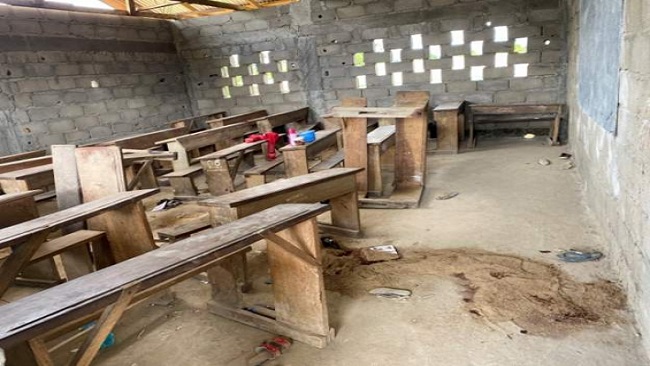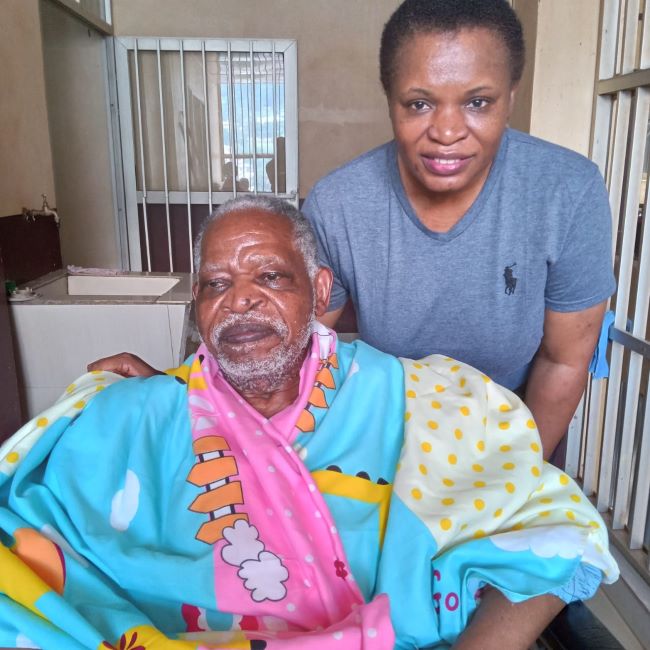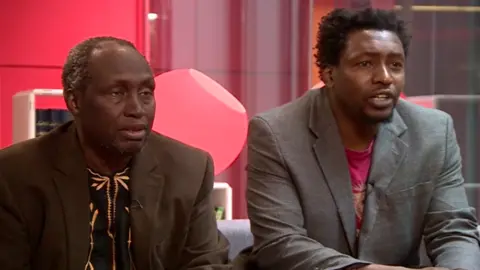3, September 2025
Cameroonian bags PhD in Swiss School of Business Research in Zurich 0
Ogbe Abunaw has joined the long list of Cameroonian academics that have successfully conquered education home and abroad after he bagged a PhD in Strategic Management from the Swiss School of Business Research in Zurich, Switzerland.
Dr Ogbe Abunaw said it was not an easy journey from the University of Buea Cameroon where he earned his BA with honors in History and Political Science to the University of Bolton, UK where he earned his MA in Human Resource Management to Harvard University, USA where he again earned a Professional Development Certificate in Management and Leadership.
Speaking exclusively to Cameroon Concord News, Dr Ogbe Abunaw said he remains deeply grateful to his mother Hon Rose Abunaw for her unwavering love, and support. Dr Ogbe furthered that this achievement belongs to her and to his entire family; friends and mentors who helped turn his dream into reality.
More than a personal milestone, Dr Ogbe Abunaw’s research carries value for the community and the global stage: it translates rigorous research into practical strategies that local businesses can adopt, informs community development and public policy toward more sustainable growth, and strengthens research visibility through international collaboration and elevates the discourse of strategic management on a global platform, and equips students, practitioners, and policymakers with evidence-based frameworks, mentoring, and opportunities to translate insight into impact wherever they are.
By Chi Prudence Asong with files from Soter Agbaw-Ebai





























9, October 2025
Queen of the Rosary College, Okoyong Alumni: Happy Feast Day 0
I recently heard on the grapevine that the indefatigable women who graced the paths of the all girls secondary school named after Our Lady of the Holy Rosary raised over one hundred thousand dollars during their AGM to renovate their alma mater. This is an incredible milestone. This is a testament, an eloquent one to the deep appreciation each member has of the role that institution played in their lives. Never forget that this used to be the lone Catholic girls school in the South West Region. In fact, it is the first girls secondary school in Cameroon. For each decade of the rosary, I would like to celebrate ten OPSAN Characteristics. If your mother, sister, wife, friend, colleague is an OPSAN, check this out.
OPSANS are proud, I mean very proud of their alma mater. I don’t want any controversy but if you did not go to QRC Okoyong or Lourdes, pray for your parents. The envy of every child. Between the 60’s and 90’s, if you didn’t have a girl friend in one of these two schools you were playing in third division League. These girls and women have earned their stripes. After all, they claim Mary, the Mother of God as theirs. Please am talking of Catholic schools oh!
Next, OPSANS are very enterprising. They are very business oriented. The Bible tells us Joseph, Mary’s husband was a carpenter but tells us nothing of Mary’s occupation. Don’t mind that bible. Show me an OPSAN who is not entrepreneurial and I can bet you she is OPS – Okoyong Past Student but not an OPSAN.
Third, they are very generous. If you are drawing up a list of donors and you don’t have an OPSAN on your list, then you are barely scratching the surface. They know how to give! They learnt from the generosity of Our Lady who so graciously accepted to take the risk to become the mother of God.
They are prayerful. If you know an OPSAN who doesn’t know how to pray especially the rosary, she needs deliverance. Those who want to, are great prayer warriors and those who don’t have time for it, just do not have time. If you have problems and do not have an OPSAN prayer warrior, you are toast.
Their school motto is semper fidelis – Always Faithful speaks to a quality that is so rare to find today. If you are looking for partners who can be faithful, if don’t get an OPSAN, na you know! Don’t ask me if I have one? The answer is no! Why not? I knew this late. But I hail, OPSANS. They know how to remain faithful in marriage. I know what am talking about. I know two of my SHESAN brothers married to OPSANS and a Birocolexsan married to an OPSAN. If one cocoyam can spoil a whole pot then I don’t need to know many OPSAN girls to draw my conclusion. If your experience is different, write your own. Even though, I guess many more OPSANS are married to SOBANS as LESANS are to SHESANS. If you want to argue, check Dr Omer Yembe and Faustina Yembe.
Hmmm. Who sent me to take on ten and am only on the fifth and already doing “cherchez le mot.” The devil is a liar…
These women are Queens! So “show-show” for them is just normal. Remember we have women, ladies and then queens. They are classy and classic! You must be of a certain class to go to QRC. “Amba” has pressed spoil on this but nothing can take away the fact that they imbibe and exude the Queenship of Mary. When you go to a school named after The Queen you cannot be anything else but Queens.
They like gossips, fights but remain true sisters. We watched the “palapala” that led to a divided kingdom of OPSA America. Beneath this was the cry for excellence, each wanting to outsmart each other in doing the best. That’s why that conflict did not last long. If you doubt it check your sister Alumni mothered too by Missionary Sisters of the Holy Rosary. Theirs is thawing now but you blazed the trail and led by example and today you are better, bigger and stronger. Over one hundred thousand dollars raised in 2025? That’s strength, Unity, generosity, Queenship and you name it.
OPSANS know how to enjoy themselves. I have often wondered how these women trained by Rev Sisters ended up not becoming Rev sisters? I know an OPSAN nun, a no- nonsense sister who hired me and fired me after one year and then I chose her to be my spiritual director. How did this story end up here? Have you attended an OPSAN party? Try! You go dance “Bayangi” dance and enjoy yourself until…I don’t know why they are not organizing more parties?
They are roses and like every rose they have thorns. You cannot have one without the other. Give them their roses!
Tenth…. Add yours! Let me spare you: They know how to organize.
Happy Feast Day OPSANS
By Bobe Lambert Mbom